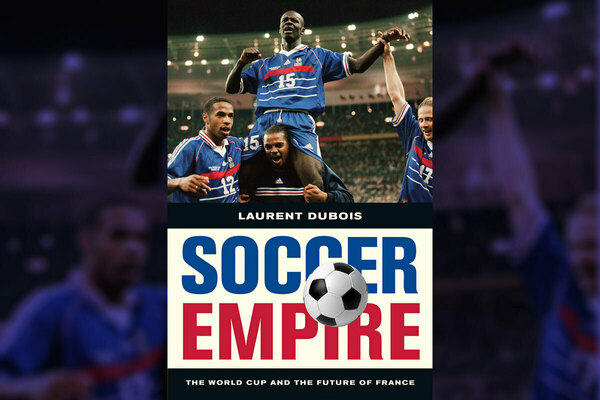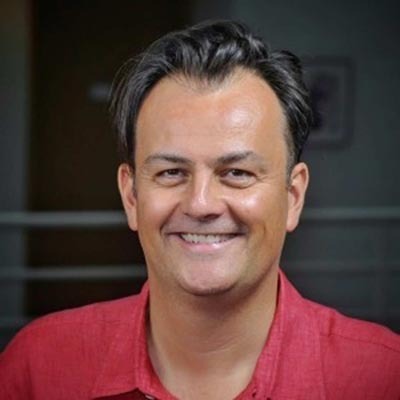
Laurent Dubois is John L. Nau III Bicentennial Professor in the History & Principles of Democracy and Director for Academic Affairs of the Democracy Initiative at the University of Virginia. He is the author of seven books, including A Colony of Citizens: Revolution and Slave Emancipation in the French Caribbean, 1787-1804 (2004), Haiti: The Aftershocks of History (2013), Soccer Empire: The World Cup and the Future of France (2010), The Language of the Game: How to Understand Soccer (2018), and The Banjo: America’s African Instrument (2016).
Most recently, Dubois co-authored Freedom Roots: Histories from the Caribbean (2019) with Richard Turits. His writings on music, history, and sports have appeared in The Atlantic, The Nation, The New Republic, The New Yorker, The New York Times, Slate, and Sports Illustrated.
Dubois is the third speaker in the “Decolonizing Scholarship” lunchtime lecture series hosted by the Nanovic Institute for European Studies. This series runs through the 2023 spring and fall semesters and features scholars from various academic disciplines at the top of their fields. His lecture will take place on Friday, March 31, 2023 at 12:30 p.m. in 1050 Jenkins Nanovic Halls.
In advance of his visit to Notre Dame, the EITW editors asked Dubois to share his thoughts on the importance of decolonizing scholarship and some of ways in which scholars can decolonize in their thinking, communication, and teaching.
Europe in the World: Why do you think it is important to decolonize scholarship?
Laurent Dubois: I think on the most basic level it is a way of doing better scholarship that is sustained by and incorporates many different voices and perspectives, rather than being locked into certain kinds of categories of interpretation that have limited our understanding of many different human phenomena.
EITW: What methodologies do you employ to do this work? (e.g., archives or sources used, interdisciplinary approaches, etc.)

LD: A big part of it is having a broadened sense of what constitutes the archives from which we work as historians, theorists, cultural analysts, ethnographers, etc. All my work has been shaped by my formation as a scholar of the Caribbean, and in that field there have long been really thriving and interesting debates about the nature of different sources, about the use of alternative ways of getting at the past beyond the written archive, about how to carefully use colonial archives but in a way that doesn’t reproduce colonial visions. This is also a field that has been robustly interdisciplinary, and in my case in particular the conversation between Anthropology, History, and Literature has been particularly fruitful because all three areas grapple in profound and illuminating ways with how we relate to the past. So interdisciplinary approaches nourish a broadened understanding of the archive, and vice versa.
EITW: When you are addressing different audiences (e.g., students in a classroom, the public, other scholars in your field), what do you have to bear in mind? How do you adapt your approach?
LD: I am particularly invested in the power of narrative as a tool of analysis, because I think narratives can do many things and speak to many different audiences at once. I mostly tend to prioritize student audiences as well as non-academic audiences in my writings, with the idea that a text can and should be welcoming to those who are discovering something for the first time. And I think you can also speak to deep and complex debates within scholarship at the same time. There are also of course occasions where it is very useful to speak within a field and to one another as scholars to share and refine methodological questions, share concrete information about sources, and debate specific interpretations. I try to practice a kind of multi-lingualism and just to be aware of what style and structure of text is most appropriate for each circumstance, but to have a broad sense of what is possible in terms of communicating with different audiences.
EITW: How can we incorporate decolonizing materials into our teaching? Are there any strategies you recommend?
LB: For me it starts with creating syllabi that offer many different perspectives and invite students into the critical conversation from the beginning. I think we need to lay out, in the most open and generous way possible, the big questions and stakes of what we are doing as scholars to our students. We need to share with them what we consider to be the best and most interesting approaches, but always with a sense both that there is a multiplicity of ways to approach any topic and that the world of inquiry is always evolving. My experience in teaching is that students very much understand what is involved and at stake in these discussions. I also like to offer students a lot of different modalities for their own work (including digital projects, audio and visual media, etc.) since I think that can allow as well for different engagement with materials between written texts.
EITW: Can you provide a short list (4-5) of writers or texts that inspired you to pursue this work?
LD:
1. Michel Rolph Trouillot, Silencing the Past (Beacon Press 20th anniversary edition, 2015)
2. Patrick Chamoiseau, Texaco (Vintage, 1998)
3. Arlette Farge, The Taste of the Archive (Yale University Press, 2015)
4. Thomas Holt, The Problem of Freedom (Johns Hopkins University Press, 1991)
Originally published by at eitw.nd.edu on March 27, 2023.